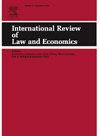通过《数字市场法》第 6(2)条加强数据保护和竞争数字市场法》第 6(2)条
IF 1
3区 社会学
Q3 ECONOMICS
引用次数: 0
摘要
随着《数字市场法》(DMA)的出台,欧盟在监管大型数字市场生态系统方面迈出了重要一步。数据保护与竞争法的关系日益密切,《数字市场法》的目标也与之紧密相连。然而,明确旨在解决把关人生态系统内数据使用(和交叉使用)问题的条款仍有许多不足之处。第 5(2)条DMA 第 5(2)条与 GDPR 既有体系相比没有提供实质性的新义务,尤其是考虑到欧洲法院在 Meta 诉联邦卡特尔局案中的判决。此外,由于信息不对称和守门人强大的市场地位,其所依赖的同意例外会带来明显的反竞争效应和隐私权减少的风险。然而,《德国信息权法》第 6(2)条也限制了对信息的使用。6(2) DMA 还限制了把关人使用数据的能力,如果这些数据是通过把关人的商业用户接收的。如果欧盟委员会对数据何时用于 "与商业用户竞争"、何时 "通过商业用户或其客户的商业活动收集 "以及何时 "在相关核心平台服务上或在与把关人的相关核心平台服务共同提供或支持的服务上 "获得数据进行广义解释,那么《数据保护法》的保护价值就会大大提高。这样做符合生态系统数据收集实践的相互关联性及其竞争地位,并将增强委员会的能力,使其能够在第 5(2)条规定之外,针对数据池的反竞争影响和潜在隐私侵犯采取行动。5(2) DMA 提供的保护。本文章由计算机程序翻译,如有差异,请以英文原文为准。
Reinforcing data protection and competition through art. 6(2) of the Digital Markets Act
With the Digital Markets Act (DMA) the European Union has taken significant steps in the regulation of large digital market ecosystems. Data protection and competition law are becoming increasingly intertwined, and the DMA’s goals are tightly aligned with them. However, the provision explicitly intended to address the use (and cross-use) of data within gatekeepers’ ecosystems leaves much to be desired. Art. 5(2) DMA offers no substantive new obligations over the established GDPR system, especially in light of the ECJ’s judgement in Meta v. Bundeskartellamt. Furthermore, the consent exception on which it relies leaves a distinct risk of anti-competitive effects and decreasing privacy as a result of information asymmetries and the powerful market position of gatekeepers. However, art. 6(2) DMA also restricts gatekeepers’ ability to use data, if it was received through gatekeepers’ business users. The protective value of the DMA can be significantly increased if the European Commission adopts broad interpretations of when data is used “in competition with business users”, when it is “collected through commercial activities of business users or their customers” and when it is obtained “on the relevant core platform services or on services provided together with, or in support of, the relevant core platform services of the gatekeeper”. Doing so would conform to the interconnected nature of ecosystems’ data collection practices and their competitive position, and it would bolster the Commission’s ability to act against both the anti-competitive effects and potential privacy infringements of data pooling, above and beyond what art. 5(2) DMA offers.
求助全文
通过发布文献求助,成功后即可免费获取论文全文。
去求助
来源期刊
CiteScore
2.60
自引率
18.20%
发文量
38
审稿时长
48 days
期刊介绍:
The International Review of Law and Economics provides a forum for interdisciplinary research at the interface of law and economics. IRLE is international in scope and audience and particularly welcomes both theoretical and empirical papers on comparative law and economics, globalization and legal harmonization, and the endogenous emergence of legal institutions, in addition to more traditional legal topics.

 求助内容:
求助内容: 应助结果提醒方式:
应助结果提醒方式:


